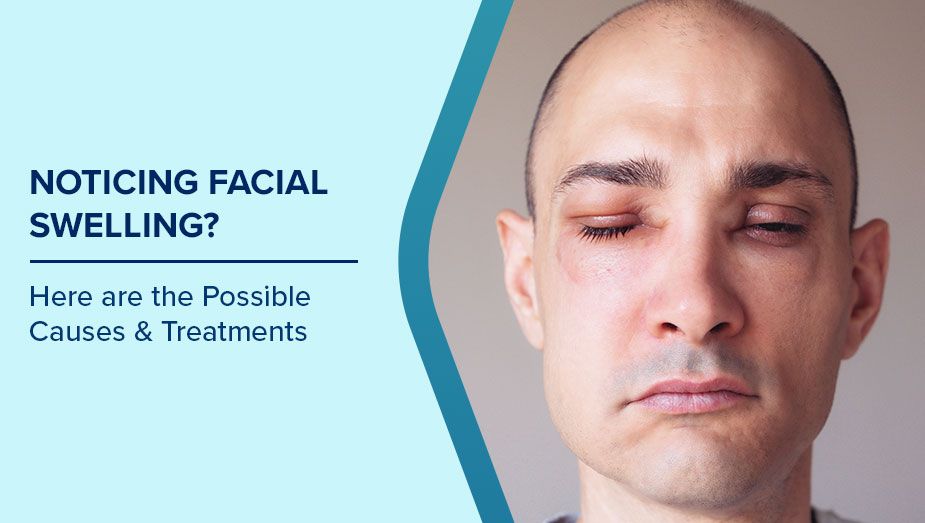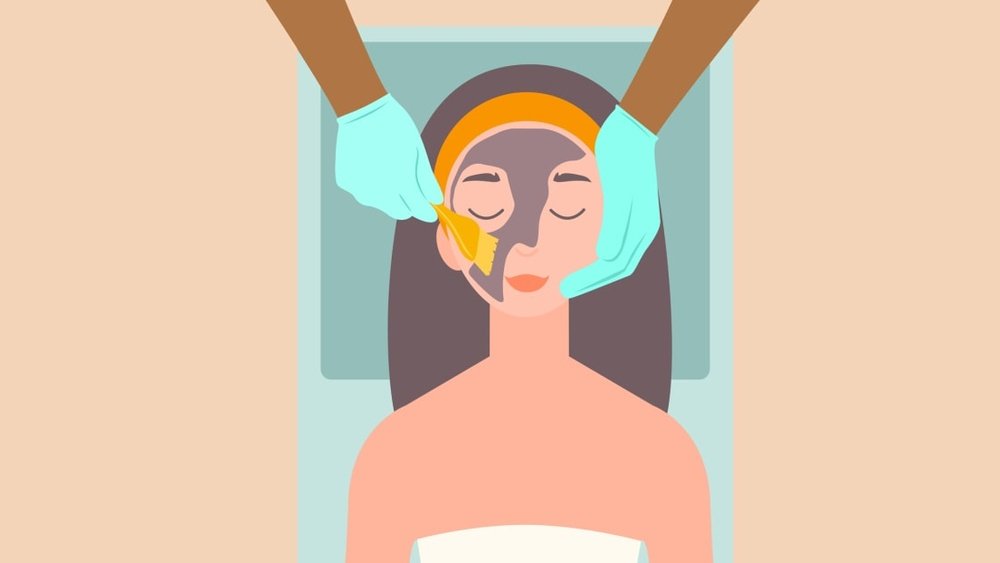Have you ever enjoyed a refreshing facial, only to find your face suddenly feeling itchy afterward? If this sounds familiar, you’re not alone—and understanding why this happens is key to soothing your skin quickly.
An itchy face after a facial can be frustrating and uncomfortable, but it’s often a sign that your skin is reacting to something. Whether it’s dryness from moisture loss, irritation from certain ingredients, or even an allergic reaction, knowing the reasons behind that itch can help you take the right steps to calm your skin.
Keep reading to discover the common causes of post-facial itchiness and learn how you can relieve the discomfort and protect your skin in the future. Your face deserves gentle care—and we’ll show you exactly how to give it that.

Credit: www.bepanthen.com.au
Common Triggers
Itchy skin after a facial can be uncomfortable and worrying. Several common triggers cause this reaction. Understanding these triggers helps you protect your skin and avoid future irritation.
Skin sensitivity varies from person to person. Identifying the cause is the first step to soothing your skin and preventing itchiness.
Irritant Contact Dermatitis
Irritant contact dermatitis happens when harsh substances damage your skin barrier. Strong soaps, perfumes, and preservatives often cause this. High levels of retinoids or AHAs in products can also irritate your skin. This irritation leads to redness, dryness, and itchiness after a facial.
Allergic Contact Dermatitis
Allergic contact dermatitis is an immune response to an allergen in skincare products. You might develop allergies to items you used before without problems. Fragrances, both natural and synthetic, are common allergens. This reaction causes itching, swelling, and sometimes small bumps on your face.
Overuse Of Actives
Using too many active ingredients at once can overwhelm your skin. Strong ingredients like retinoids, AHAs, or BHAs can irritate sensitive skin. Applying these products on damp skin increases absorption and may cause more irritation. This overuse often results in itching and discomfort after your facial.
Skin Barrier Disruption
Skin barrier disruption happens when the protective outer layer of your skin is damaged. This layer stops harmful things from entering your skin. It also keeps moisture inside. After a facial, this barrier can get weakened. This causes itchiness and discomfort.
The skin barrier is made of natural oils and cells. When these oils are lost or disturbed, the skin cannot hold water well. This leads to dryness and irritation. Understanding why this happens helps to care for your skin properly after a facial.
Loss Of Natural Oils
Facials often use cleansing agents that strip away natural oils. These oils protect your skin and keep it soft. Without them, your skin becomes dry and sensitive. Dry skin feels tight and itchy. The loss of oils also makes your skin more open to irritants.
Removing too much oil can cause redness and flaking. Your skin needs time to rebuild these oils. Until then, it may feel uncomfortable and itchy. Using gentle, moisturizing products helps restore the oil balance faster.
Effects On Hydration
Hydration depends on the skin’s barrier to lock in water. When the barrier is disrupted, water escapes easily. This causes your skin to dry out quickly. Dry skin is a common cause of itchiness after a facial.
Without enough moisture, your skin loses its smoothness and flexibility. It becomes rough and flaky. Hydrated skin feels calm and comfortable. Applying a good moisturizer after a facial helps keep the skin hydrated. This reduces itching and speeds up healing.
Application Mistakes
Application mistakes during skincare routines often cause an itchy face after facials. These errors can irritate sensitive skin and weaken the skin barrier. Simple missteps may lead to redness, itching, or discomfort. Understanding these mistakes helps avoid unnecessary skin problems and keeps your face calm and healthy.
Applying Products On Damp Skin
Applying active skincare products on damp skin can increase their absorption. This might sound good but can cause irritation. Damp skin allows stronger penetration of ingredients, which may overwhelm the skin. Sensitive skin especially reacts with redness and itchiness. Always dry your face lightly before applying potent products.
Mixing Too Many Actives
Using multiple active ingredients at the same time can harm your skin. Actives like retinoids, acids, and vitamin C may clash and irritate. This overload stresses the skin, leading to itching and inflammation. Introduce new actives slowly and one at a time. Keep your routine simple to protect your skin’s health.

Credit: www.maxhealthcare.in
Quick Relief Tips
Dealing with an itchy face after a facial can be uncomfortable. Quick relief helps calm your skin and stops the irritation. Follow these simple tips to ease the itch fast. These steps protect your skin while it heals and prevents further problems.
Stop Using Suspect Products
Immediately stop any new product that caused the itch. Even familiar products can irritate if skin is sensitive. Avoid all products with strong fragrances or harsh chemicals. Keep your skincare simple until your skin feels normal again.
Cold Compress For Soothing
Apply a cold compress to the itchy areas. Use a clean cloth soaked in cold water or ice wrapped in fabric. Hold it gently on your face for a few minutes. This reduces swelling and calms the itchy sensation quickly.
Gentle Skincare Routine
Switch to mild, fragrance-free cleansers and moisturizers. Avoid scrubs, acids, and active ingredients until your skin heals. Use lukewarm water when washing your face. Pat dry softly with a clean towel to avoid irritation.
Over-the-counter Remedies
Itchy skin after a facial can cause real discomfort. Over-the-counter remedies offer quick relief and help calm irritated skin. These treatments are easy to find and use at home. They target inflammation and allergic reactions that often cause itching. Choosing the right product is key to soothing your skin safely.
Hydrocortisone Cream
Hydrocortisone cream reduces redness and swelling. It works by calming the immune response in the skin. Apply a thin layer to the itchy area once or twice daily. Avoid using it on broken or open skin. Limit use to a few days to prevent thinning of the skin. This cream is useful for mild irritations after facial treatments.
Antihistamines
Antihistamines block chemicals that cause itching and swelling. They are especially helpful if allergies trigger your reaction. You can take antihistamines in pill form or use creams with antihistamine properties. Oral antihistamines may cause drowsiness, so use caution. These medicines reduce itching quickly and improve comfort during flare-ups.
When To See A Doctor
Knowing when to see a doctor for an itchy face after a facial is important. Most mild itching clears up with home care. Some signs require professional help to avoid complications. Watch for changes in the rash, spread, or other symptoms. Acting quickly can protect your skin and overall health.
Severe Or Widespread Rash
A rash that covers a large area or worsens needs medical attention. Severe redness, swelling, or blistering can signal a serious issue. Do not wait if the rash spreads beyond your face. Early treatment helps prevent infection and long-term damage.
Sensitive Area Involvement
Itching near your eyes, lips, or inside your mouth is risky. These areas are delicate and prone to complications. If swelling or pain occurs around sensitive zones, see a doctor. Prompt care can stop the problem from getting worse.
Signs Of Allergic Reaction
Allergic reactions can be dangerous and need quick response. Difficulty breathing, tightness in the throat, or dizziness are emergency signs. Also watch for hives or severe swelling on the face. Seek immediate medical help to ensure safety.

Credit: www.assuranceskin.com
Frequently Asked Questions
Why Am I Itchy After A Facial?
Itchiness after a facial often occurs due to skin irritation, dryness, or an allergic reaction to products used. Overuse of strong ingredients or moisture loss can also cause itching. Stop using irritating products, moisturize well, and consult a dermatologist if itching persists or worsens.
What Does It Mean If Your Face Is Itchy After Skincare?
An itchy face after skincare signals irritation or allergy to a product ingredient. Stop use immediately. Switch to gentle, fragrance-free products. Use cold compresses or over-the-counter creams to soothe. Consult a doctor if itching worsens, spreads, or involves sensitive areas like eyes or mouth.
What Is An Itchy Face A Symptom Of?
An itchy face often signals irritation, allergic reactions, dry skin, or contact dermatitis from skincare products or environmental factors.
Why Did My Face Get Worse After A Facial?
Your skin may worsen after a facial due to irritation, allergic reactions, or over-exfoliation. Moisture loss and strong products can cause redness and itchiness. Avoid harsh ingredients and moisturize promptly. Simplify your routine and consult a dermatologist if symptoms persist or worsen.
Conclusion
An itchy face after a facial is common but should not be ignored. It often signals skin irritation or a mild allergic reaction. Stop using any new or suspect products right away. Switch to gentle, fragrance-free skincare to help your skin heal.
Avoid scratching to prevent infection and worsening symptoms. Use cold compresses or over-the-counter creams for relief. Seek medical advice if the itchiness lasts long or the rash spreads. Taking care of your skin post-facial ensures comfort and healthy results.
 Skip to content
Skip to content 